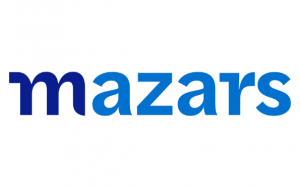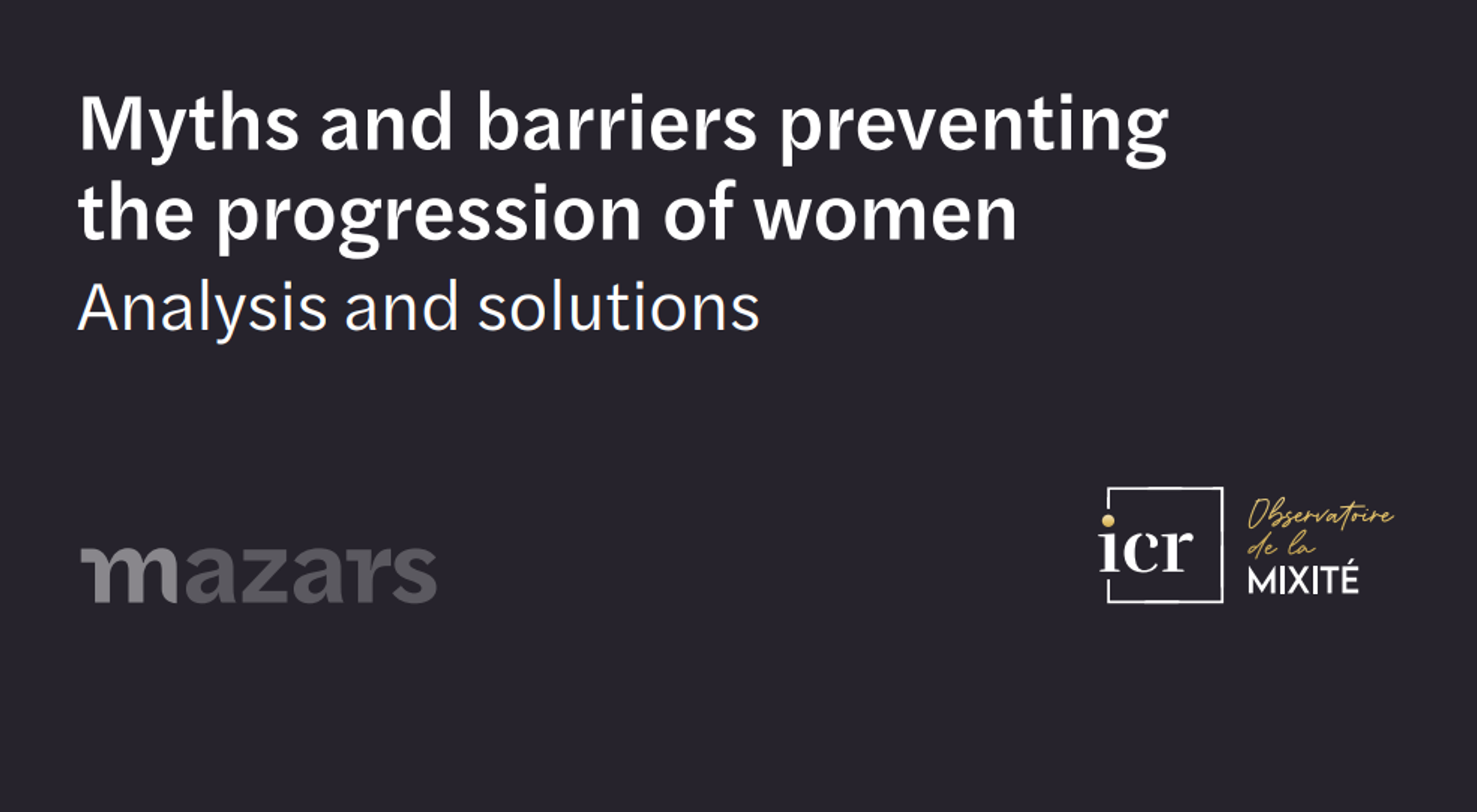The report 'Myths and barriers that block women's progression' analyzes and debunks eight myths in the workplace. These include the lack of ambition and risk aversion among women, the issue of maternity or quotas and meritocracy. The Mazars and Gender Balance Observatory study also identifies solutions for successful change and coincides with the launch of a self-assessment tool on diversity strategies for CEOs and top executives.

November 10, 2022, LisbonMazars, an international auditing, tax and consulting firm, and the Gender Balance Observatory have teamed up to address the stereotypes and prejudices that persist as obstacles to increasing gender diversity in organizations and suggest proposals on how these can be resolved.
The report 'Myths and barriers that block women's progression' presents a set of myths debunked by experts and leaders in gender equality, as well as a new tool developed to help CEOs quickly assess the diversity programs in their organizations and understand whether they have implemented the right measures to accelerate gender equality.
Although there are no single solutions - each company has its own corporate culture that requires a series of targeted solutions - all companies share the need to adjust or compensate for an unequal social and professional playing field for women, underpinned by socio-economic myths as well as cultural and unconscious prejudices.
 For Patrícia Cardoso, Partner at Mazars in Portugal, "the benefits for organizations of gender diversity in leadership are already widely known. After all, what can we do to overcome the myths and prejudices that block women's progress and that continue to persist in society? This should be everyone's concern, not just women's. With this initiative, Mazars aims to provide organizations with diagnostic tools and accelerate gender equality. Building the future must be based on models of equality."
For Patrícia Cardoso, Partner at Mazars in Portugal, "the benefits for organizations of gender diversity in leadership are already widely known. After all, what can we do to overcome the myths and prejudices that block women's progress and that continue to persist in society? This should be everyone's concern, not just women's. With this initiative, Mazars aims to provide organizations with diagnostic tools and accelerate gender equality. Building the future must be based on models of equality."
Managing diversity: a self-assessment tool for top management
Because managing diversity and inclusion has become an essential skill for managers, Mazars and the Gender Balance Observatory have developed a self-assessment tool for CEOs. This checklist of concrete, educational and practical verification allows CEOs to quickly assess the relevance of their gender diversity programs, based on the six measures to accelerate gender diversity published by the Observatory.
Myths about diversity in organizations
There are a total of eight myths identified by the experts consulted by Mazars and the Gender Balance Observatory in this initiative: i. "Women don't have or have less ambition"; ii. "Motherhood is not compatible with a leadership position"; iii. "The invisible woman" or "We can't find competent female candidates in the field". pool of talent"; iv. "Women are reluctant to take risks"; v. "Part-time work is not compatible with leadership roles"; vi. "Gender inequalities are mainly found at the top of the corporate ladder"; vii. "There are male jobs"; viii. "Quotas are not based on merit and are unfair to men, and increase the risk of pushing incompetent women into key positions".
"Given the slow pace of change, we wanted to understand the persistent myths that may be reducing companies' efforts to promote gender diversity," explains Cécile Kossoff, Global Diversity and Inclusion Leader at Mazars Group.
Hervé Hélias, CEO and Chairman of the Mazars Group, says: "Beyond equality and justice, this is a business concern. It's no longer possible to operate in a male bubble. Diversity is a source of openness and better performance - it allows for exchanges, new visions and less biased decisions. Today, it has become a general management issue, which must be dealt with at the highest level."
Is more legislation the way forward?
When assessing the evolution of diversity at a global level, it can be seen that much has already been achieved. However, despite the progress made, there is still a long way to go. In 2019, only 20% of board members worldwide were women.
At a national level, countries like France have proven the power of legislation. Standing out as the most advanced country in this field, France, under the impetus of the Copé-Zimmermann law, has had 46% women on Boards of Directors since 2021.
"Improvements have been greatest in countries that have imposed mandatory quotas, including France, Italy, Germany and Belgium. But along with legislation, the pandemic has shown that many stereotypes and prejudices still persist in the workplace, which create barriers for women to reach executive level," comments Marie-Christine Maheas, Coordinator of the Gender Balance Observatory, Leader of the Mazars Center for D&I and Advisor to CEOs and executive committees on the subject.
"According to the UN, world GDP could increase by 26% by reducing the gaps between women and men in the labor market: concrete solutions are urgently needed! To begin this journey, it is important to define precise and ambitious gender equality objectives at all levels, in order to guide organizations internally on the subject," adds Caroline de La Marnierre, Co-coordinator of the Gender Balance Observatory.
"Breaking down these barriers will require an international shift in ideology and in the way diversity and inclusion are approached - the focus should be less on strengthening female leadership skills and more on systemic changes in the work environment and business practices," concludes Mazars Group's Global Diversity and Inclusion Leader, Cécile Kossoff.
About Mazars
Mazars is an international integrated partnership specializing in audit, accounting, consulting, tax and legal services*. Operating in more than 90 countries and territories around the world, we draw on the expertise of more than 44,000 professionals - 28,000+ in the Mazars integrated partnership and 16,000+ via the Mazars North America Alliance - to support clients of all sizes at every stage of their development.
*when permitted by local legislation.
About the Gender Balance Observatory
With the support of the Institute for Responsible Capitalism, sponsored by Michel Landel, independent advisor and former CEO of Sodexo, and co-directed by Caroline de La Marnierre and Marie-Christine Mahéas, the Gender Balance Observatory is a think tank which brings together companies active in the field of gender equality, as well as recognized experts in the field.
Its main objective is to make rapid and sustainable progress in gender balance within organizations, producing concrete recommendations for decision-makers, companies and institutions.

